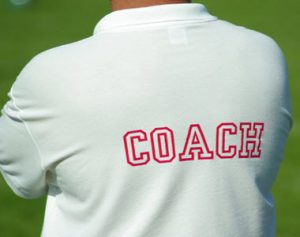There are millions who participate in physical activity and sports daily. In Europe, there is an estimated nine million coaches that coach men, women and children who engage in sports, whether amateur, semi-pro or professional. When you compare this to the number of teachers in Europe, coaches almost double their numbers. Many of those are working with children of varying ages to help them learn particular sports, develop skills and achieve their goals.
However, recent studies have shown many of those trusted with the job of coaching lack the qualifications with many being completely unqualified to take on this responsibility. Those studies have demonstrated further most do not hold any certificates or have skills that qualify them to coach young children or any other for that matter. When you consider the number of coaches, coaching could be classified as one of the largest employers in Europe as many are paid for their services. One of the problems is the social statue children’s coaches are given as they are considered essential in helping children grow as individuals and as athletes.
Underpaid and unappreciated
What is important however to recognise is that millions of those coaches for so without any remuneration and volunteer their time to help the kids and community sports teams. However, ones that are valued and have credentials ware beginning to see that change. This is thanks in part to new policy’s across Europe that focus on the development of an appropriately educated workforce of coaches by evaluating how people are trained for their respective coaching responsibilities.

Some countries, such as Lithuania and Hungary have laws in place that require all those in a position of coach to graduate with a state-recognised certificate, license or diploma in order to act as a coach. Generally, most countries have zero regulations in place that govern the qualifications of coaches and leave that up to the individual sporting associations to manage. The problem with this is, that has been shown to be flawed, and training on how to coach, how to handle children based on individual skills, abilities, and ages is needed to help children maximise their potential.
Future of Coaching
The future of coaching is expected to see improvements in the training models and requirements associations set for those interested in coaching. This will include those who are in paid positions as well as those volunteering their time. One of the concerns is it could lead to a smaller pool of people willing to go through the process, especially those who are doing so without remuneration.
How those programs will be developed, or whether they will be adopted as a standard across most sports leagues will have to be seen. The hope is that all those with a shared interest in sports, and the value it not only beings to those who participate, but also those who live in communities, will come together for the greater good of coaching and the benefits it provides.
